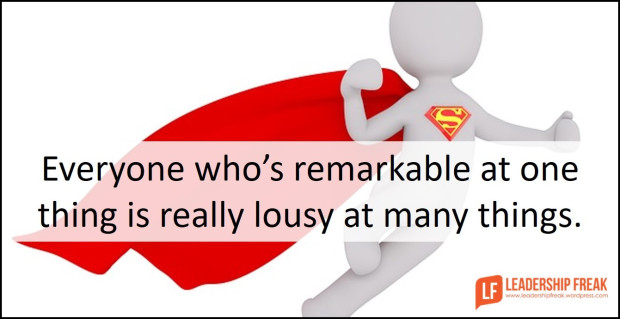I joined (and spent 18 years in) Toastmasters International so that I could learn how to be a better communicator and leader. It was by far the best investment of time and money I’ve ever made.
I am still working at improving my ability to communicate with conviction, clarity and conciseness, as I firmly believe that being an excellent communicator is a leader’s most powerful skill to develop and a skill which will reap rich dividends in his/her leadership journey.

Brian Tracy, author/speaker/seminar leader says:
“Your ability to communicate effectively with people will contribute more to your success than any other skill you can develop. I’ve learned that fully 85% of what you accomplish in your career and in your personal life will be determined by how well you get your message across and by how capable you are in inspiring people to take action on your ideas.”
Over the years I’ve learned a lot about personal communication (both written and spoken). Additionally, I have made more than my share of mistakes along the way.
Here are 14 tips (which I’m still learning to put into practice) to help you in becoming an excellent communicator. I am thinking primarily of people in Christian ministry; however, most of these would apply to any context and any person wishing to be a better communicator.
1. Be biblical so it can be believed. The Bible has spiritual authority (Hebrews 4:12) and will convict and motivate more than any other words.
2. Be personal so it can be lived. Put the “cookies” on the lower shelf. Keep it at a personal–not theoretical or conceptual, level.
3. Be practical so it can be useful. Make what you say practical and simple–not overly complicated to understand.
4. Be Purposeful so it will be applied. Have a clear purpose in what you’re saying. What do you want people to do with what they’ve heard? Ask those in your audience to do something specific with what they’ve received from you. Ask for a commitment, a change, a step up to the plate, a step out in faith.
5. Be Illustrative so it can be understood. Charles Spurgeon said that illustrations are like windows that let the light in. Find some excellent illustrations and stories that make the truths you are trying to convey come alive in the minds of your listeners. Use your own life in some of these illustrations.
6. Be Organized so it can be remembered. Have a clear flow to your ideas. Don’t wander all over the place.
7. Be relevant so it will be listened to. Scratch where people are itching, not where you want them to itch.
8. Be knowledgeable: Do your homework. Don’t come half prepared. Don’t wing it. Don’t pick just any theme or topic, but go with those you have knowledge of and convictions about.
9. Be truthful: Don’t embellish or exaggerate the truth. Don’t cower from speaking the truth or hide the truth (Acts 20:20,27; 2 Corinthians 4:2)
10. Be passionate: If you don’t believe it, why should they? All kinds of personality types can be passionate about ideas they deeply care about.
11. Be vulnerable: Don’t be afraid to share weakness, sin and mistakes. People will identify more with your weaknesses than your strengths. They need to know you are human–just like they are (2 Corinthians 11:30)
12. Say it like you mean it: Speak with spiritual authority and conviction that the Holy Spirit wants to give you.
13. Be prayerful: Be much in prayer as you prepare, as you’re speaking and after you’ve spoken. It is the Holy Spirit that changes lives. Pray for transformation to take place in the hearts of those to whom you are speaking (I Corinthians 2:4,5)
14. Strive for a single clear point or theme: Don’t try to make too many points. Having one clear and engaging idea is powerful and effective. People will more than likely not remember 10-15 ideas, but they can and will remember one good idea. Most communicators I’ve heard try to say too much and move too quickly through their material because they’ve prepared too much to say. One of the marks of a good communicator is knowing what to leave out as well as what to leave in.
While in Toastmaster we did a lot of evaluating of speeches. We learned to categorize our thoughts around COD. This used to mean “Cash On Delivery.” But in Toastmasters it meant:
C – Content. Was the content solid, relevant and helpful? Was there a clear opening, body and close?
O – Organization. Was the presentation well organized having a logical flow of ideas?
D – Delivery. Was it delivered with good body language, passion and knowledge?
Invest time and energy in becoming an excellent communicator and take your leadership to a whole new level!

Recent Comments